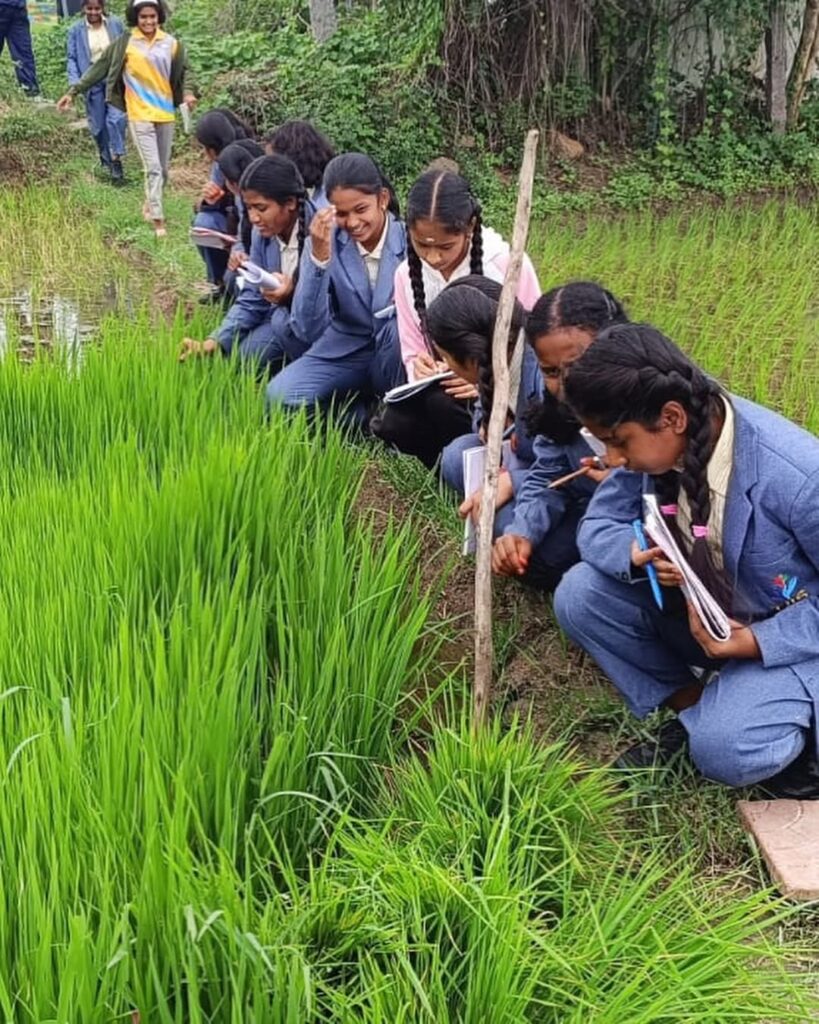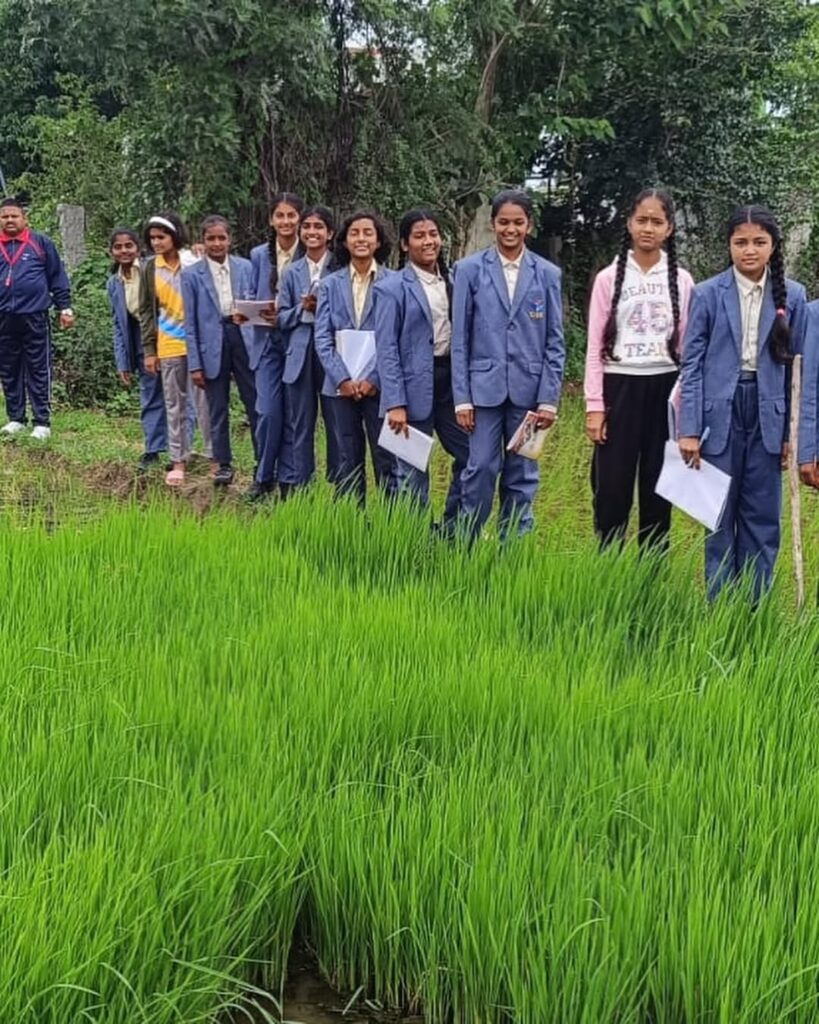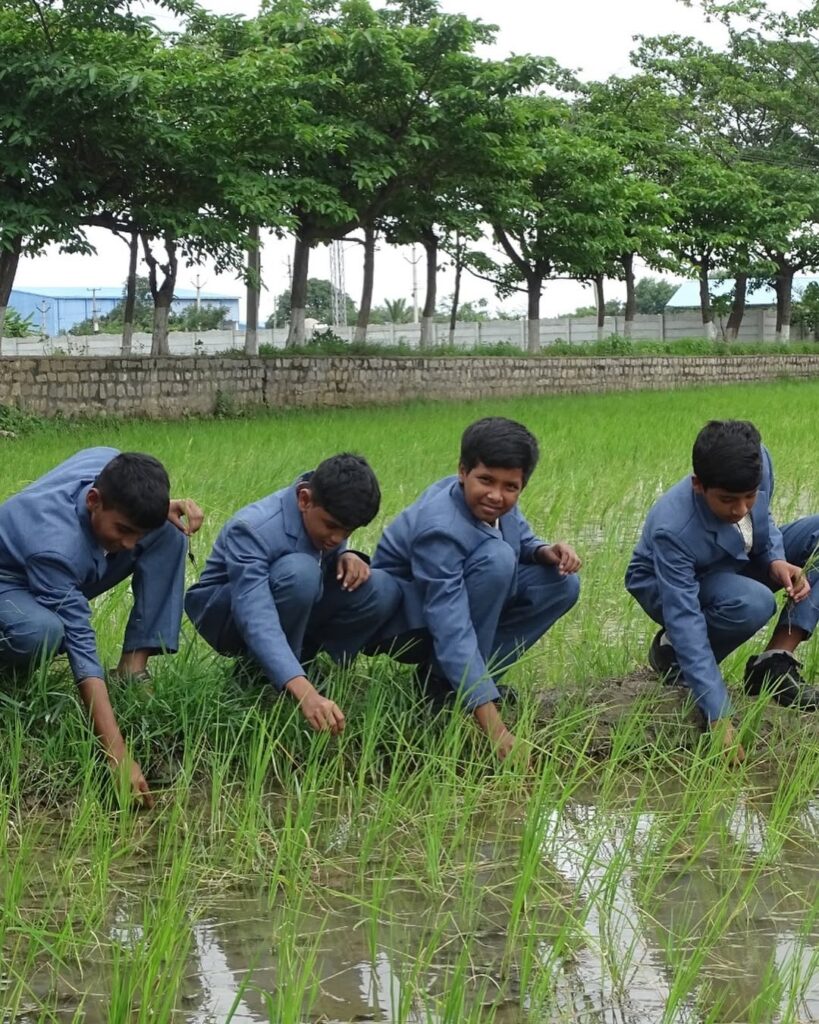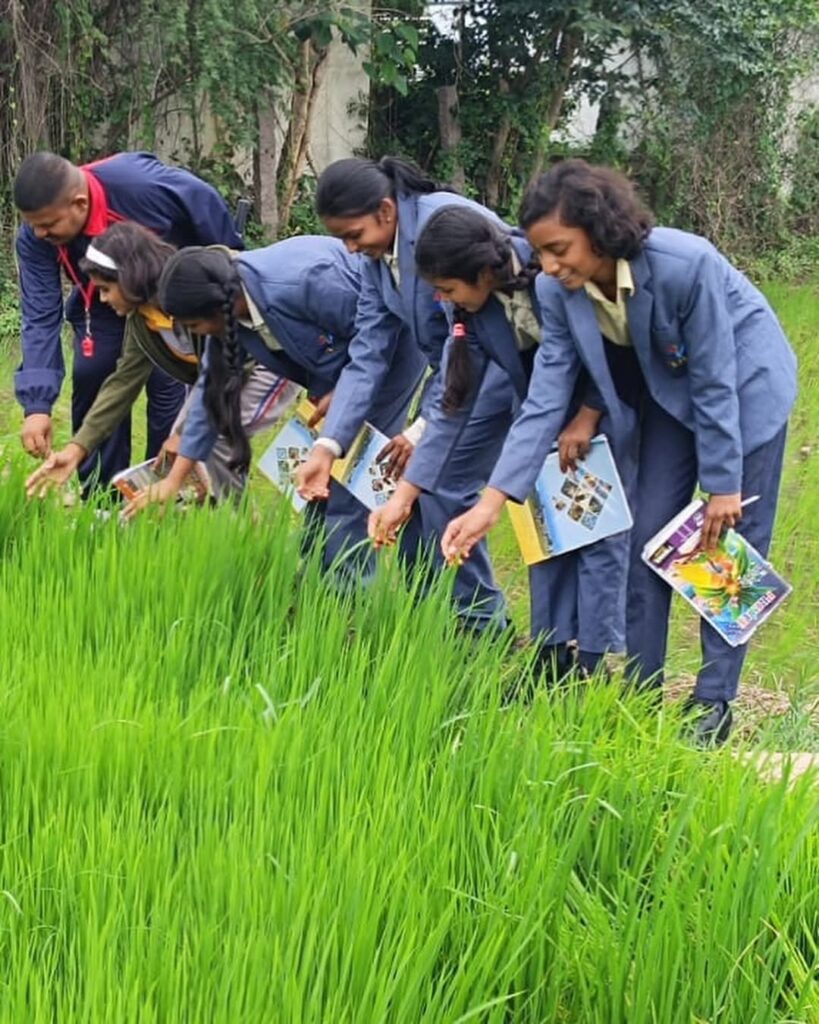Field Trip to a Paddy Field: A Practical Learning Experience for Grade-VIII Students at TJIS
Exploring Paddy Cultivation: Grade-VIII Field Trip at TJIS. At TJIS, we believe in blending classroom learning with real-world experiences, providing our students with hands-on exposure to their curriculum topics. One such exciting and enriching experience was the field trip organized for our Grade-VIII students to a nearby paddy field, as part of their lesson on Crop Production and Management.
The visit allowed students to immerse themselves in the practical aspects of paddy cultivation, giving them a firsthand understanding of the intricacies involved in farming, which they have only read about in their textbooks. The field trip fostered a deeper appreciation for the efforts of farmers and the complex agricultural practices that sustain the global food supply.
Understanding the Basics: Introduction to Seedbeds
The first stop in the field trip was the seedbed, the foundational step of paddy cultivation. Exploring Paddy Cultivation: Grade-VIII Field Trip at TJIS. The students learned that the seedbed is where the seeds are initially sown and grown until they are ready to be transplanted to the main field. Through direct observation, students witnessed the tender care and precise measures taken to ensure the seedlings’ healthy growth. They were introduced to concepts such as seed selection, water management, and the importance of the seedbed for a successful crop yield.
The farmers explained how they carefully choose high-quality seeds, ensuring that the paddy plants have a strong start. Our students observed the arrangement and the conditions provided in the seedbed, which were conducive to optimal sprouting. This step in the field trip allowed students to relate their theoretical knowledge to real-world farming practices. Exploring Paddy Cultivation: Grade-VIII Field Trip at TJIS.




Ploughing and Levelling: Preparing the Soil for Paddy Cultivation
After visiting the seedbed, the students were taken to a part of the field where the land was being prepared for cultivation. They learned that soil preparation is critical to ensure the healthy growth of crops. The students saw the ploughing process firsthand, as a tractor tilled the soil, breaking it up into finer particles. This step helps in aerating the soil, making it easier for water to reach the roots of the plants. The students understood that without proper soil preparation, even the best-quality seeds might not thrive. Exploring Paddy Cultivation: Grade-VIII Field Trip at TJIS.
Next came the levelling of the field, which ensures that water is distributed evenly across the entire paddy field. Since paddy requires standing water during its growth stages, the importance of a leveled field for efficient irrigation was explained to the students. They were intrigued to learn how the field’s level influences water retention, drainage, and the overall health of the paddy plants.
Transplanting Seedlings: The Core of Paddy Cultivation
Exploring Paddy Cultivation: Grade-VIII Field Trip at TJIS. One of the most exciting parts of the trip was observing the transplanting process, which fascinated the students. In paddy cultivation, the seedlings grown in the seedbed are carefully uprooted and transplanted into the main field. The students were shown how this is done manually in many parts of India, although machines are also used in modern farms.
The process involves planting the seedlings at the correct depth and ensuring proper spacing between them. This ensures that each seedling has enough room to grow and access to nutrients, water, and sunlight. The students understood that transplanting is a crucial step that, when done right, enhances the crop’s yield and growth. Exploring Paddy Cultivation: Grade-VIII Field Trip at TJIS. Watching the careful process made students appreciate the skill and effort required in farming.
The Importance of Irrigation in Paddy Fields
Paddy cultivation is highly water-intensive, and the students learned about the various irrigation methods used to maintain optimal water levels in the field. The farmers demonstrated the irrigation techniques they use, explaining how water is directed into the fields to maintain the shallow flooding necessary for the plants’ growth.
Our students saw firsthand how irrigation channels are set up and how important it is to control the water levels at different stages of growth. They learned that while paddy needs standing water, too much or too little water can harm the crop. This part of the field trip helped students understand the complexities involved in managing water resources for farming, especially in water-scarce areas.
Learning Beyond the Classroom: The Impact of the Field Trip
This educational excursion not only helped reinforce the students’ understanding of Crop Production and Management but also fostered a greater appreciation for farmers and the agricultural industry. The students realized that farming is not just about planting seeds and harvesting crops; it involves planning, care, and attention to detail at every step of the process.
By witnessing the different stages of paddy cultivation firsthand, students could visualize the concepts they had studied in their textbooks. The field trip also helped them grasp the environmental and economic factors influencing farming, such as the availability of water, the quality of the soil, and the role of technology in modern agriculture.
Reflection and Appreciation: The Farmers’ Role
Throughout the trip, the students were encouraged to ask questions, and the farmers were more than happy to share their knowledge and experience. This interaction helped the students gain insights into the daily challenges faced by farmers, such as the unpredictability of the weather, the constant need for water, and the hard labor involved in cultivating crops.
This experience left a lasting impression on the students. Many of them expressed newfound respect for the farmers’ efforts, realizing how much work goes into producing the food that ends up on our plates. It also sparked interest in learning more about agriculture, sustainability, and food security. Exploring Paddy Cultivation: Grade-VIII Field Trip at TJIS.
Conclusion: A Well-Rounded Learning Experience
The field trip to the paddy field was undoubtedly a valuable experience for the Grade-VIII students of TJIS. It combined practical learning with classroom knowledge, offering the students a well-rounded understanding of paddy cultivation and the agricultural industry. The Science Department at TJIS is committed to organizing such enriching activities, which not only enhance academic learning but also provide students with experiences that nurture their overall growth.
Exploring Paddy Cultivation: Grade-VIII Field Trip at TJIS. As the students reflected on the trip, they carried back not just knowledge but also a greater appreciation for the environment, the farmers, and the food they consume every day. This trip served as a reminder that education goes beyond books—it’s about understanding the world around us and being inspired to contribute positively to it.
